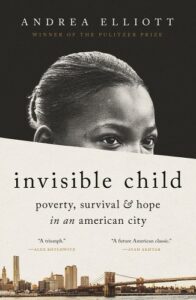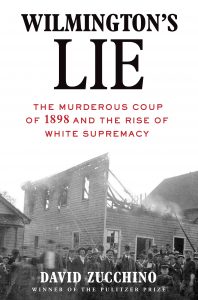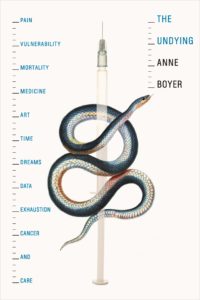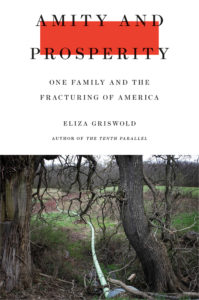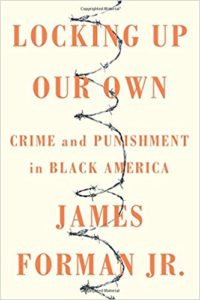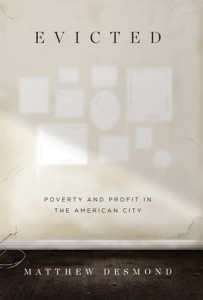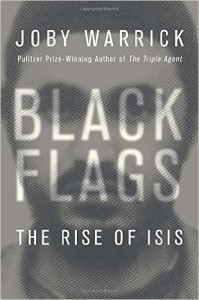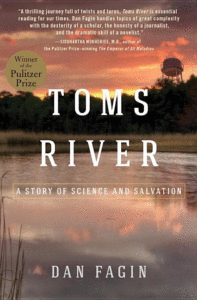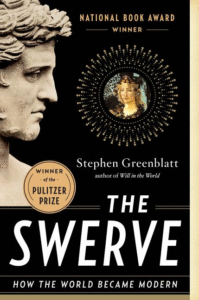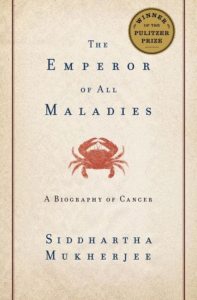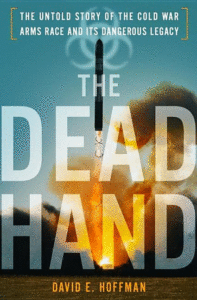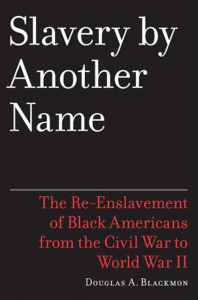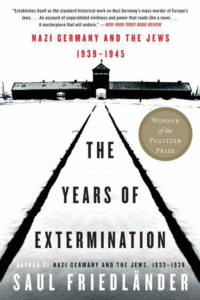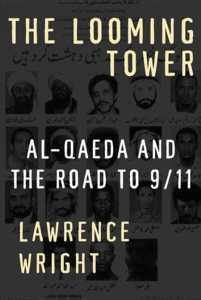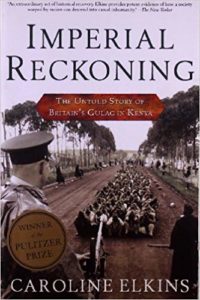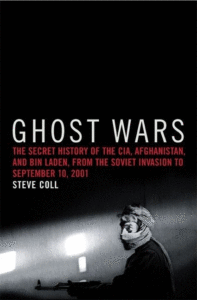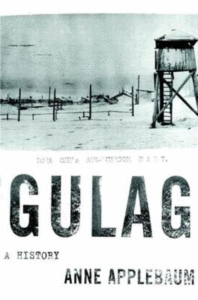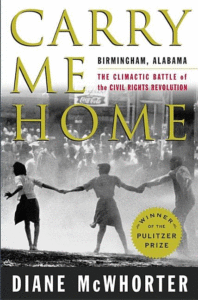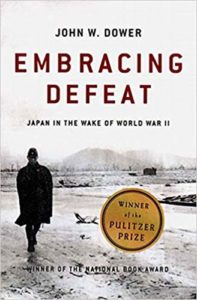Have a look back at every Pulitzer Prize for Nonfiction winner of the 21st Century.
This afternoon, at around 3PM (EST), from Columbia University in New York City, the winner of this year’s Pulitzer Prize for General Nonfiction will be announced.
As well as a check for a cool $15,000 dollars (which feels a little low, tbh), the victor will gain entry to a very exclusive club—one which includes the likes of Carl Sagan, Studs Turkel, Annie Dillard, and John McPhee.
So, as you wait with bated breath to see which of your favorite authors gets to take home that giant gold coin with Benjamin Franklin’s face on it, why not stroll down memory lane with us as we look back over the last twenty-three recipients of this prestigious award.
*
2022
Invisible Child: Poverty, Survival & Hope in an American City by Andrea Elliott
“Invisible Child…goes well beyond her original reporting in both journalistic excellence and depth of insight. Elliott spent eight years working on the book, following Dasani and her family virtually everywhere … The reporting has an intimate, almost limitless feel to it, the firsthand observations backed up by some 14,000 pages of official documents, from report cards to drug tests to city records secured through Freedom of Information Law requests. The result of this unflinching, tenacious reporting is a rare and powerful work whose stories will live inside you long after you’ve read them … When a story catches fire, we can easily mistake a cultural moment for concrete policy change, as if we could simply speak a new world into existence … Elliott attunes herself to the family’s frequency, noticing what teachers and social workers often miss: the secret language of sisters, the subtle ways Dasani trammels herself to uplift her mother. One vivid scene follows another, written in the present tense … At times, this can result in some awkward syntax, but overall it works, lending the prose moral urgency … We cannot understand that which we refuse to see, and Elliott forces us to look, to reckon with Chanel’s full humanity, to take in Dasani’s pain and beauty—to watch her grow up.”
–Matthew Desmond (The New York Times Book Review)
2021
Wilmington’s Lie: The Murderous Coup of 1898 and the Rise of White Supremacy by David Zucchino
“… brilliant … Zucchino does not overwrite the scenes. His moral judgment stands at a distance. He simply describes what happened and the lies told to justify it all … The details contained in the last part of the book are heart-wrenching. With economy and a cinematic touch, Zucchino recounts the brutal assault on black Wilmington … Zucchino pulls the story into our present moment … What becomes clear, at least to me, is that memory and trauma look different depending on which side of the tracks you stand.”
–Eddie S. Glaude Jr. (The New York Times Book Review)
2020
The Undying: Pain, Vulnerability, Mortality, Medicine, Art, Time, Dreams, Data, Exhaustion, Cancer, and Care by Anne Boyer
“The pink ribbon, that ubiquitous emblem of breast cancer awareness, has long been an object of controversy and derision, but the poet and essayist Anne Boyer doesn’t just pull it loose, unfastening its dainty loop; she feeds it through a shredder and lights it on fire, incinerating its remains … extraordinary and furious … [Boyer’s] story, told with searing specificity, is just one narrative thread in a book that reflects on the possibility—or necessity—of finding common cause in individual suffering.”
–Jennifer Szalai (The New York Times)
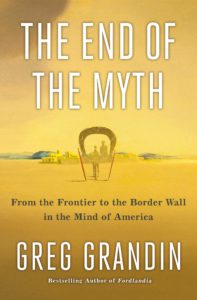
The End of the Myth: From the Frontier to the Border Wall in the Mind of America by Greg Grandin
“… a book I would recommend to President Trump in particular, though of course he wouldn’t read it … brilliant, blistering … as bracing an analysis of post-2016 America as any I have read. Grandin’s book is so sharply argued, so rooted in careful historical detail, so morally clear, that it makes a strong claim to be the most essential political text yet to emerge from the shock of Trump’s election … One essential use of a historical analysis like Grandin’s is to reopen inquiry into lost possibilities, to pay attention to what the present has muted, to discover the hand of contingency in what is treated as inevitable.”
–Casey Walker (The Los Angeles Review of Books)
2019
Amity and Prosperity: One Family and the Fracturing of America by Eliza Griswold
“Amity and Prosperity tells with vivid detail the contours of daily life in Washington and Greene counties … The book’s subtitle, ‘One Family and the Fracturing of America,’ is a significant play on words as well as this riveting book is very much about the contested practice of industrial fracking … Ms. Griswold’s descriptions are spot on and clearly recognizable … Although the story is a page-turner exposing corporate injustices, dishonesty and public malfeasance…it is still appealing to read about places one knows … Ms. Griswold is an energetic writer, and the characters she writes about are themselves colorful, raw and dogged … not only a glimpse into postindustrial small towns and the environmental consequences of fracking but also a legal thriller worthy of any novel by John Grisham.”
–Byron Borger (The Pittsburgh Post-Gazette)
2018
Locking Up Our Own: Crime and Punishment in Black America by James Forman Jr.
“…[a] superb and shattering first book … That is truly what this book is about, and what makes it tragic to the bone: How people, acting with the finest of intentions and the largest of hearts, could create a problem even more grievous than the one they were trying to solve … This is the exceptionally delicate question that he tries to answer, with exemplary nuance, over the course of his book. His approach is compassionate. Seldom does he reprimand the actors in this story for the choices they made … The stories he shares are not just carefully curated to make us think differently about criminal justice (though they will, particularly about that hallowed distinction between nonviolent drug offenders and everyone else); they are stories that made Forman himself think differently, and it’s in telling them that he sheds his cautious, measured self and becomes a brokenhearted, frustrated civil servant.”
–Jennifer Senior (The New York Times)
2017
Evicted: Poverty and Profit in the American City by Matthew Desmond
“Evicted is that rare work that has something genuinely new to say about poverty. Desmond makes a convincing case that policymakers and academics have overlooked the role of the private rental market, and that eviction ‘is a cause, not just a condition, of poverty’… Evictions have become routine. Desmond’s book should begin to change that.”
–Gabriel Thompson (The San Francisco Chronicle)
2016
Black Flags: The Rise of ISIS by Joby Warrick
“There have been a number of previous biographies of Zarqawi, but Warrick takes the story much further and deeper. Most important, he shows, in painful but compulsively readable detail, how a series of mishaps and mistakes by the U.S. and Jordanian governments gave this unschooled hoodlum his start as a terrorist superstar and set the Middle East on a path of sectarian violence that has proved hard to contain … What makes Warrick’s book unique is its focus on the group’s roots, especially the evolution of its founder.”
–Jessica Stern (The Washington Post)
2015
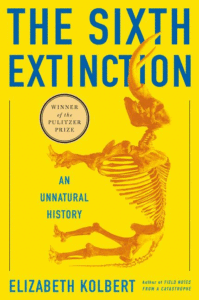
The Sixth Extinction: An Unnatural History by Elizabeth Kolbert
“a clear and comprehensive history of earth’s previous mass extinctions—and the species we’ve lost—and an engaging description of the extraordinarily complex nature of life. Most important, Kolbert delivers a compelling call to action … vividly presents the science and history of the current crisis. [Kolbert] extensive travels in researching this book, and her insightful treatment of both the history and the science all combine to make The Sixth Extinction an invaluable contribution to our understanding of present circumstances, just as the paradigm shift she calls for is sorely needed … makes an irrefutable case that what we are doing to cause a sixth mass extinction is clearly wrong. And she makes it clear that doing what is right means accelerating our transition to a more sustainable world.”
–Al Gore (The New York Times Book Review)
2014
Toms River: A Story of Science and Salvation by Dan Fagin
“It’s high time a book did for epidemiology what Jon Krakauer’s best-selling Into Thin Air did for mountain climbing: transform a long sequence of painfully plodding steps and missteps into a narrative of such irresistible momentum that the reader not only understands what propels enthusiasts forward, but begins to strain forward as well, racing through the pages to get to the heady views at the end. And such is the power of Dan Fagin’s Toms River, surely a new classic of science reporting … This is, after all, no fairy tale, but a sober story of probability and compromise, laid out with the care and precision that characterizes both good science and great journalism in a territory where both are often reduced to their worst.”
–Abigail Zuger (The New York Times)
2013
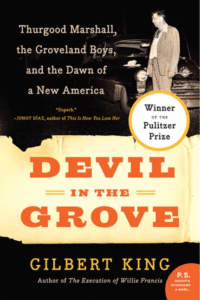
Devil in the Grove: Thurgood Marshall, the Groveland Boys, and the Dawn of a New America by Gilbert King
“Devil is a compelling look at the case that forged Thurgood Marshall’s perception of himself as a crusader for civil rights … King’s style, at once suspenseful and historically meticulous, advances the facts of the Groveland case while simultaneously weaving together details from Marshall’s professional rise within the NAACP and his home life in Harlem … the author is at his best when describing the complicated machinations working, to opposite ends, in the citrus groves of Groveland and the NAACP’s chaotic Fifth Avenue offices.”
–Meredith Bennett-Smith (The Christian Science Monitor)
2012
The Swerve: How the World Became Modern by Stephen Greenblatt
“The Swerve is one of those brilliant works of non-fiction that’s so jam-packed with ideas and stories it literally boggles the mind. But throughout this profusion of riches, it seems to me, a moral emerges: something about the fragility of cultural inheritance and how it needs to be consciously safeguarded. Greenblatt, of course, doesn’t preach, but, instead, as a master storyteller, he transports his readers deep into the ancient and late medieval past; he makes us shiver at his recreation of that crucial moment in a German monastery when modern civilization, as we’ve come to know it, depended on a swerve of the Poggio’s grasping fingers.”
–Maureen Corrigan (NPR)
2011
Emperor of All Maladies: A Biography of Cancer by Siddhartha Mukherjee
“Mukherjee is doing more than providing an account of medical developments, scientific discovery and human suffering. The underlying structural dynamic of his book turns out to be the riddle of progress itself, the application of reason and science to chaos and disease – the uber-project of modernity that, even if it has achieved too much to be called a failure, can never finally succeed … intensely vivid and precise descriptions of biological processes accumulate into a character, fully developed and eerily familiar. The notion of ‘popular science’ doesn’t come close to describing this achievement. It is literature.”
–Alexander Linklater (The Observer)
2010
The Dead Hand: The Untold Story of the Cold War Arms Race and Its Dangerous Legacy by David E. Hoffman
“This book is in the best traditions of American long-form reportage … Key characters are evoked in enough detail to make us care and then carry the narrative through to the end. It involves simplifications and elisions: but in this case, these are less important than the horrified fascination Hoffman… succeeds in rousing through a story at once journalistically detailed and morally alive … Hoffman’s flowing narrative is so seductively readable that it seems destined for a conclusion which resolves all.”
–John Lloyd (The Financial Times)
2009
Slavery by Another Name: The Re-Enslavement of Black Americans from the Civil War to World War II by Douglas A. Blackmon
“… a groundbreaking and disturbing account of a sordid chapter in American history … Blackmon’s book reveals in devastating detail the legal and commercial forces that created this neoslavery along with deeply moving and totally appalling personal testimonies of survivors. ‘Every incident in this book is true,’ he writes; one wishes it were not so.”
2008
The Years of Extermination: Nazi Germany and the Jews, 1939–1945 by Saul Friedlander
“This volume … will cement [Friedländer’s] reputation as one of the most influential and perceptive historians of the Shoah writing today … Friedländer brings to life the words of the victims through their letters and diaries. He uses this resource probably more extensively and effectively than any other scholar, helping him write a history with a novelist’s sense of the human aspects of the tragedy. Keenly aware that the role of historical knowledge is to smooth away disbelief, to make history seem ordinary, Friedländer provides a remarkable study of the Shoah without eliminating or domesticating the enduring sense of shock or disbelief that must confront any reader.”
–Michael N. Dobkowski (Jewish Book Council)
2007
The Looming Tower: Al-Qaeda and the Road to 9/11 by Lawrence Wright
“What a story it is. And what a riveting tale Lawrence Wright fashions in this marvelous book. The Looming Tower is not just a detailed, heart-stopping account of the events leading up to 9/11, written with style and verve, and carried along by villains and heroes that only a crime novelist could dream up. It’s an education, too—though you’d never know it—a thoughtful examination of the world that produced the men who brought us 9/11, and of their progeny who bedevil us today.”
–Dexter Filkins (The New York Times Book Review)
2006
Imperial Reckoning: The Untold Story of Britain’s Gulag in Kenya by Caroline Elkins
“The catalog of cruelty Elkins uncovered—bits from surviving documents, more from interviewing survivors—makes for quite nauseating reading that descends the slope of depravity from torture to outright killing. Inevitably news of incidents leaked out, igniting parliamentary rows in London, which Elkins chronicles with contained fury. Filling a previously blank page in history, Elkins’ pioneering study is a crucial recording of Kenyan history in particular, and that of African decolonization in general.”
–Gilbert Taylor (Booklist)
2005
Ghost Wars: The Secret History of the CIA, Afghanistan, and Bin Laden, from the Soviet Invasion to September 10, 2001 by Steve Coll
“… remarkable … No one else I know of has been able to bring such a broad perspective to bear on the rise of bin Laden; the CIA itself would be hard put to beat his grasp of global events. Rarely has a book been able to anticipate, as Coll’s has, the revelations of government bureaucrats, such as Richard Clarke, about intelligence. It does so, moreover, in a more comprehensive way than the recent testimony of US officials has done … Some writers given access to the innermost corridors of power appear mesmerized by their proximity to the real players, and it shows. It does not show in Coll’s book.”
–Ahmed Rashid (The New York Review of Books)
2004
Gulag: A History by Anne Applebaum
“What can a reviewer say? Every page is a horror story … Anne Applebaum has immersed herself in the whole gruesome story, and any writer can only be speechless with admiration for her fortitude and her scholarship: she is Solzhenitsyn’s amanuensis, or exegetist. It is not a book that this reviewer could ever have managed to write. but it needed to be written. and the task-could not have been done better. It deserves a prize.”
–Norman Stone (The Literary Review)
2003
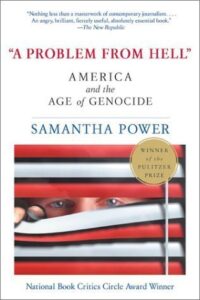
“A Problem from Hell”: America and the Age of Genocide by Samantha Power
“Power expertly documents American passivity in the face of Turkey’s Armenian genocide, the Khmer Rouge’s systematic murder of more than a million Cambodians, the Iraqi regime’s gassing of its Kurdish population, the Bosnian Serbian Army’s butchery of unarmed Muslims and the Rwandan Hutu militias’ slaughter of some 800,000 Tutsi. This vivid and gripping work of American history doubles as a prosecutor’s brief: time and again, Power recounts, although the United States had the knowledge and the means to stop genocide abroad, it has not acted. Worse, it has made a resolute commitment to not acting. Washington’s record, Power ruefully observes, is not one of failure, but of success.”
–Laura Secor (The New York Times Book Review)
2002
Carry Me Home: Birmingham, Alabama, the Climactic Battle of the Civil Rights Revolution by Diane McWhorter
“… an exhaustive journey through both the segregationist and integrationist sides of Birmingham’s struggle … expertly follows the tangled threads of culpability until they reveal what she calls ‘the long tradition of enmeshment between law enforcers and Klansmen,’ which included the Federal Bureau of Investigation as well as the state and city police. [McWhorter’s] precision in filling in the particulars of that collaboration contributes significantly to the historical record.”
–David K. Shipler (The New York Times)
2001
Hirohito and the Making of Modern Japan by Herbert P. Bix
“This book is a rare achievement: a work that turns established knowledge upside down. Bix’s detailed review of the life of Hirohito makes clear that the emperor was not a passive figurehead manipulated by war-minded militarists but an active strategic plotter of the Japanese wars of aggression—and a certifiable war criminal. His postwar denial of personal responsibility for Japan’s wartime actions helped legitimize the national amnesia about what had happened during the war.”
–Lucian W. Pye (Foreign Affairs)
2000
Embracing Defeat: Japan in the Wake of World War II by John W. Dower
“The writing of history doesn’t get much better than this. MIT professor Dower offers a dazzling political and social history of how postwar Japan evolved with stunning speed into a unique hybrid of Western innovation and Japanese tradition … Dower manages to convey the full extent of both American self-righteousness and visionary idealism … His digressions into Japanese culture—high and low, elite and popular—are revealing and extremely well written. The book is most remarkable, however, for the way Dower judiciously explores the complex moral and political issues raised by America’s effort to rebuild and refashion a defeated adversary—and Japan’s ambivalent response to that embrace.”



